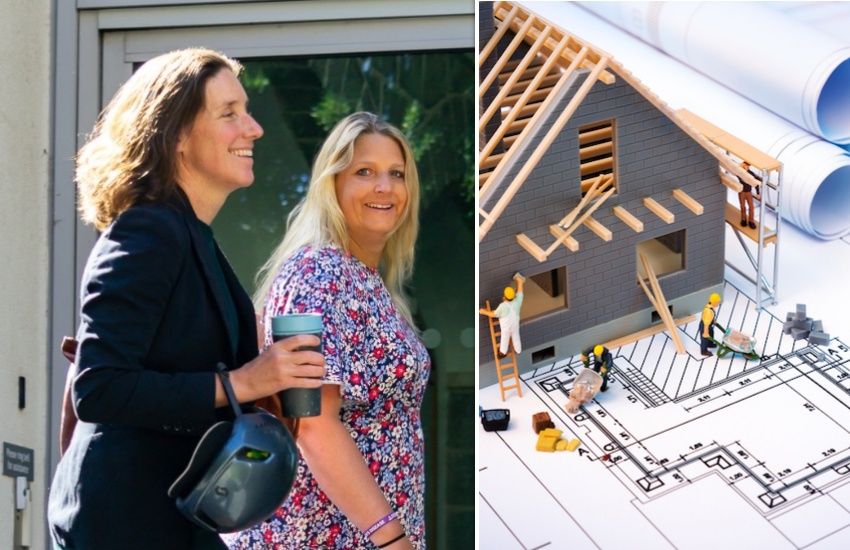


More certainty should be provided for developers by pausing a controversial affordable housing policy for private sites for a fixed two-year period, rather than up to five years, two deputies have proposed.
It marks a further climbdown of support for the notorious housing policy GP11 which requires private sites of more than 20 homes to offer up to 30% of the developable land to the island’s social housing provider, unless doing so would render projects commercially unviable.
It was introduced in 2016 to ensure the cash windfall gained by landowners after securing planning permission for large building plots went some way to provide public housing, but criticism of it has grown with no homes delivered through it in eight years.
A political petition from a group of critical deputies, set to be debated next week in the States, attempts to remove the policy through a scorched earth approach – seeking radical changes to planning laws without the need for “any or all” of the existing mechanisms.
But that method has been batted down by other deputies who say it will lead to unintended consequences but have instead sought to simply change the contribution rate to 0% temporarily. Chief Minister Deputy Lyndon Trott wants it paused up to 2029 and has submitted an amendment to that effect.
But now a new amendment has been tabled by Deputies Lindsay de Sausmarez and Victoria Oliver, Presidents of Environment & Infrastructure and the Development & Planning Authority respectively.
They say it will give developers more certainty over the period at which the social housing contribution rate will be set at 0% by fixing the policy pause to two-years.They also say it will push developers to get applications for housing in faster than the alternatives and will reduce the cost to the taxpayer of funding social housing projects without the input of the private sector.
“[Housing need] is becoming all the more intense as our population increases well above the projected levels, whilst completion rates for new properties (both private and affordable) remain well below the indicated housing requirement,” their explanatory note reads.
“A two-year period of 0% contribution rates will act as a greater incentive than a five-year period to bring forward planning applications for larger housing developments sooner, meeting that objective more effectively.”

Pictured: Deputies Lyndon Trott and John Dyke, leading the first amendment and the Requête respectively.
The DPA is currently reviewing planning laws, including the social housing policy, which will be considered by the States in early 2025.
Deputies de Sausmarez and Oliver say it would be unwise to not implement any of those changes up to four years after they’ve been agreed by the States, which is why the end date of the policy freeze has been proposed as 1 May 2026.
“As this work on GP11 has already been commissioned and carried out, it makes sense to consider the evidence and make any decisions relevant to GP11 at the time that policy letter is debated... The housing market can change significantly in five years, as recent history has shown us, so the longer the period between a decision and its implementation, the greater the risk that the circumstances informing that decision may have changed in the interim, possibly rendering the measure less appropriate or effective,” they said.
“Should Amendment 1 be successful, the actual duration of the 0% rate will remain uncertain until the States debates the policy letter around this time next year. This amendment therefore provides greater certainty for developers."
They added that, while hard to calculate, two years rather than five years is likely to reduce public costs to provide affordable housing via the States in the interim.
“It is reasonable to assume that the likely impact on taxpayer funding requirements would be lower were that rate to be set for a two-year period than were that rate to be set for a period of up to five years, even assuming a greater concentration of planning applications in those initial two years.”
Debate on the affordable housing Requête, and the amendments, will take place in the States from 24 April.
Comments
Comments on this story express the views of the commentator only, not Bailiwick Publishing. We are unable to guarantee the accuracy of any of those comments.